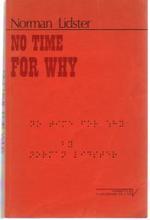Norman; the saga continues
 Thank you for your very positive and thoughtful comments on my piece concerning my uncle, Norman Lidster. I include her a little more of the tale and what happened to this amazing man. A man I would have indeed found astonishing, whether or not I was related to him. As follows, the material in direct quotes is from Norman's own memoir, and the italicized comments are the ones I have put in with the hope of ultimately getting his book republished in an anotated version.
Thank you for your very positive and thoughtful comments on my piece concerning my uncle, Norman Lidster. I include her a little more of the tale and what happened to this amazing man. A man I would have indeed found astonishing, whether or not I was related to him. As follows, the material in direct quotes is from Norman's own memoir, and the italicized comments are the ones I have put in with the hope of ultimately getting his book republished in an anotated version."On the evening of the May Day festival, I attended the Queen's Ball,
little realizing as I walked home the two miles from Queen's Park Arena in the cool of the midnight air under star-studded skies, that this would be the last time I would walk and dance and see normally. I awoke to stabbing
pains in my chest and shoulders, and by daybreak I felt excruciating pain
in my knees and hips. The most painful attack of arthritis yet had begun."
The earlier attack of rheumatoid arthritis had been but a preview of what
was to come this time around. The 20-month hiatus after that attack had
left him almost cruelly assured that the worst was over, and that life and
the future for a young man was still bright and hopeful. This time it was
different, and much more ominous.
"Within a week both eyes were affected and for the next few weeks I lay in
a darkened room, my attention absorbed by the agonizing pain of swollen
joints and the burning inflammation in my eyes."
Norman never really recovered from that May Day assault and remained
basically housebound for a year, while he awaited the better health that
was not destined to come to him. It was a year-long regime of various
injections (which proved futile), massage and physiotherapy, which helped
somewhat when attacks were in remission, but had no lasting impact.
In September of 1937 he returned to school, but found the task often
excruciating since the attacks on his eyes rendered reading and studying
painful. Teachers tried to help as best they could, and he also acquired
glasses, but nothing made much difference. The truth was, though he didn't
fully appreciate it yet, he was going blind.
He soldiered on, but the deterioration continued. By December of that year
bright lights were accompanied by haloes, and his views of certain stationary objects doubled and then quadrupled.
"These were the first signs of permanent eye damage, the result of the
smoldering nature of the disease and the many flare-ups I had suffered over
the years. the illness was entering a new and different phase."
In March of 1938, while Hitler's troops annexed Austria, and were poised to
seize Czechoslovakia; Norman was hit with another generalized attack of
arthritis. This time it was different; the pathology had changed and life
became a living nightmare.
"It was followed by another and another, like the tolling of a bell, with
each stroke sounding before the previous one had died away. The pain was
torturous. It wrapped itself around my limbs and clung to my back like a
wild animal; I could not get away from it. When I was tuned on my left
side, it came with me and when I was turned back, it followed. So many
joints had become swollen and inflamed that even the jiggling of the bed
when my sisters walk about the room caused me distress."
The nights, he wrote, were as bad as the days for, as he tried to sleep
muscle spasms jerked his pained joints excruciatingly.
"In the morning I faced each day with the hope that the pain would be gone,
but it never was. It stayed with me like a monstrous beast. For months I
lay in a pool of pain, afraid to move, not realizing that my stillness
speeded up the ankylosis of my joints. In this way, by my eighteenth
birthday my frame was completely welded from head to heals and I was unable
to turn myself in bed."
Simultaneously his eyes were deteriorating more radically by the day, and
he tells how the former haloes he had seen around the lights had broadened
into "unkempt doughnuts", and came to dominate his line of vision.
"When I looked at my mother's face, all of it was blotted out except for
her teeth, which showed up clean and white in the sunshine. I could (also)
see the gleam of the central keys of an old organ, standing in the hallway
outside my room, but the rest of it was wrapped in the mist."
The unkempt doughnut circles ultimately filled in, and his eyes were
completely clouded. He tells of weeping one hot July evening when he
glanced at the curtain of red roses clinging to the trellis outside the
bedroom window.
"No longer could I see the intricate tapestry of their intertwining blooms.
Now they appeared as a scarlet blotch before my eyes."
While the stress and the pain wore at his general well-being, causing him
to lose vast amounts of weight, Norman marvelled at the fact he was not more
depressed than he was at the time.
"Dwelling on my terrible present and bleak future could have made me
severely depressed, but the demands of the disease kept me so busy that I
was spared the anguish of brooding."
By now the grim and vicious trick of fate had run its most destructive
course. There was, of course, much more to come, but the devastation had,
at the same time, been completed, and he would never return to the active
life he had cherished. The only blessing to be found, while he was not yet
aware of it, was his intellect. While the body had become a wretched and
wasted thing, of virtually no value other than as a container for what lay
within, it was the intellect, and ultimately the indomitable spirit of the
man that were to carry him through the next nearly 40 years of a life that
was lived with more meaning in some respects than those lives lived by any
dozen physically unafflicted, and unchallenged mortals.
Norman now, on the eve of World War II, was to enter a new phase of his
life -- the long and usually painful path to some sort of stability. Not
rehabilitation, but rather adjustment to his reality was going to be the
key to any sort of success.
What always struck me about Norman at that later stage, when I knew him,
was how well-adjusted he 'seemed' to be to his reality. He did ultimately
become philosophically attuned to the title of his book, 'No Time for Why',
but that was to be an amazing process of both acceptance and compromise.
Such acceptance and compromise did not come about, as he explained it to
me, without ultimately attaining an abiding faith that his misfortune was
some sort of fortune in disguise. It was his spiritual essence that was to
take him from his useless body and eyes, and give him grace, movement, and
an all-encompassing vision. None of this was apparent to him, however, in
the excruciating early stages of his so-called recovery.


6 Comments:
Hi Ian,
This is so moving...intertwining Norman's private 'war' with the exterior one is very compelling. I've sadly been witness to that twisting of pain; that wild beast.
It's a terrifying sight alone.
Ian, I'm reading this and filled with so much respect for your uncle..
I'm so very happy you are doing this. For many, the word arthritis has no meaning. They understand that it involves pain and limis of mobility, but, they don't really understand the extreme of what that really means.
His eyes are what I'm trying to imagine. RA in the eyes would have to be more painful than we could imagine. Thank GOD my eyes have not been effected. I never even thought of that until you started this story. An attack of arthritis can strike at any time and catch us completely unaware.
Ian, this is a wonderful thing you are doing here. Norman's story needs to be told. Most important it needs to be heard. Can I link these parts of your story in my sidebar?
Thank you for your thoughts, Tai. I appreciate your insights most definitely.
And Cathy, you may certainly link this material for your sidebar, with my pleasure. And I know Norman would thoroughly approve.
cheers,
Ian
Ian, Norman's life is awe-inspiring for anyone who has a physical limitation to work around ... and unimaginable for someone who can't grasp the immensity of what he went through.
Thank you for doing this, Ian. You're an exceptional person. Looking forward to more.
Hullo! As someone afflicted with "reactive arthitis", I can get some idea of what uncle Norman went through. Thank you so much for sharing his inspiring story. I want to invoke the title of James Agee's booK Let Us Now Praise Famous Men. Best, rama
Hey Ian, good morning from the tropics!
My family has RA in our history and my mom is bedridden at this time from this affliction whilst my aunt (who is much older) moves around like a gazelle. It hits some of us and misses others.
I can tell already that it will affect my knees as sometimes I get striking pains in that region when climbing long flights of stairs.
About the way it affected your uncle's eyes, that was new information for me as I had no idea it could affect this area also. Sufferers of RA, though, usually have to get their vision corrected at an early age, like my mom and myself.
Thanks so much for this very informative posting.
Post a Comment
Subscribe to Post Comments [Atom]
<< Home